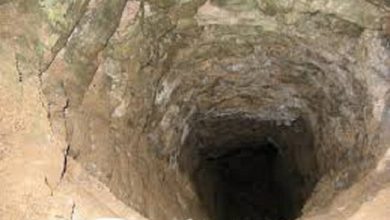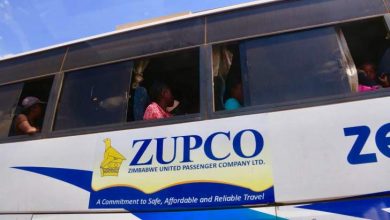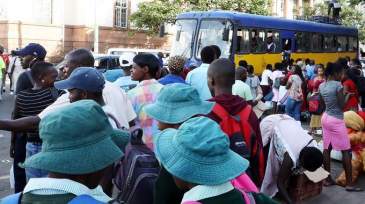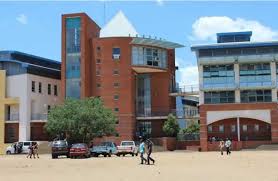Covid-19: Zimbabwe women bear the brunt of govt crackdown
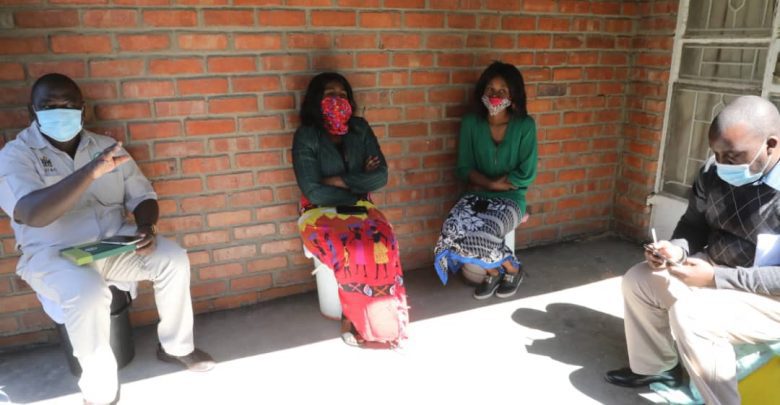
By Tumelo Nare
The lockdown to slow down the spread of Covid-19 has been marked by a spike in cases of abuse of women ranging from political harassment to gender-based violations, a new investigation has revealed.
Zimbabwe went into a lockdown at the end of March after the country recorded its first Covid-19 cases and deaths.
President Emmerson Mnangagwa, however, has been accused of using the lockdown as cover to close the democratic space through arrests, abductions and torture of opponents.
The study by the Women’s Academy For Leadership and Political Excellence (Walpe) covering the period between March and September throws new light into the nature of the violations.
In the report titled, ‘State of Women’s Rights and Well Being in the Era of Covid-19 in Zimbabwe, says investigations revealed that there were 985 cases of human rights violations since the first case of Covid-19 was recorded in the country in March.
It says women have been the most affected by the violations, which in August alarmed international bodies such as the United Nations and the African Union.
South African President Cyril Ramaphosa unsuccessfully tried to intervene in the crisis after Mnangagwa blocked his envoys from meeting the opposition and civil society groups.
The abuses, which were amplified by the abduction and sexual abuse of MDC Alliance female activists Joana Mamambo, Cecilia Chimbiri and Netsai Marova in August, sparked the #ZimbabweLivesMatter global campaign that piled pressure on Mnangagwa.
Troubling pattern emerges
Walpe says the investigations that involved documenting cases of abuse against women and interviews revealed a troubling pattern.
The investigations focused on women based in both urban and rural areas.
Women human rights defenders and political activists bore the brunt of an increasingly brutal government, the probe discovered.
“Women human rights defenders and political activists face additional and different risks and obstacles that are gendered, intersectional and shaped by entrenched gender stereotypes and norms,” reads part of the findings.
“In the current political climate where there has been a backlash against the human rights of women and girls, women rights defenders and activists are often the first to come under attack for their work.
“It appears the Zimbabwean government has used the pandemic as an excuse to trample upon the rights of women human rights defenders and activists, who have spoken boldly against corruption, and the need to respect constitutionalism in the country.”
The report added:” Those who have protested demanding social safety nets and cushioning of the poor and vulnerable have also not been spared.”
Abductions, sexual violence, online violence
The violations have been perpetrated in different forms such as abductions, unlawful arrests, torture, sexual violence, assault, online violence.
“With Covid-19 and the introduction of broad restrictions, the safety and work of women human rights defenders and activists is at even greater risk.
“These women leaders who have been bold enough to call out state excesses and use of brute force in enforcing lockdown regulations found themselves targeted.”
“Female activists who have criticised governments’ responses to Covid-19 have been harassed, threatened, or detained, and some of them their access to the internet cut off.”
Other female activists that were victims of arbitrary arrests identified in the report included Namatai Kwekweza, Vongai Zimudzi, Moreblessing Nyambara, Tsitsi Dangarembga, Fadzai Mahere, Nancy Njeke and Mitchell Lieto.
Walpe also recorded 156 cases of women being physically and emotionally abused at roadblocks by state security agents.
The plight of Bulawayo sisters
In Bulawayo, sisters Ntombizodwa and Nokuthula Mpofu were brutally assaulted by police officers whilst queuing to buy food outside a supermarket in May.
In August another Bulawayo woman Noxolo Maphosa was abducted, tortured and sexually assaulted by suspected state security agents.
Maphosa was abused as revenge by the police for failing to locate her relative, Josphat Ngulube who is a human rights defender.
Ngulube, popularly known as Mzaca, was being hunted by state security agents for his alleged role in the July 31 protests.
“All these alleged abusers are the very custodians of law and order, who are looked up to by the citizens, which leaves women in a state of desperation as they have little or no hope of redress,” the report says.
“On 1 September 2020, several women that are informal traders from Murehwa were arrested and fined for cheering on the opposition leader Nelson Chamisa while he was passing by their market place.
“This shows that the government has not only criminalised dissent but has suspended civil liberties such as freedom of expression and assembly.”
Threat to reverse gains
The abuses during the lockdown also had social dimensions and fuelled fears that the new environment that encourages the abuse of women will roll back gains made in efforts to reverse gender imbalances.
“The advent of the Covid-19 pandemic in Zimbabwe has created a lot of negative effects on women and girls in communities,” the 16 page report added.
“The lockdown is now threatening a reversal of gains made in the past in so far as promotion and respect of women and girls’ fundamental rights is concerned.
“There has been a surge in the number of cases of gender based violence in the country since the announcement of the lockdown.”
The violations included heavy handedness by state security agents dealing with women, domestic violence, sexual abuse and emotional blackmail within homes and communities.
Domestic workers, mostly women, are also going without pay due to the negative impact of the lockdown on the economy.
“The pandemic has further exposed vulnerable groups such as women and women with disabilities to abject poverty,” the Walpe investigation revealed.
“Women being the majority of informal traders have not been able to work freely over the past six months due to the lockdown and curfews introduced to control the spread of the virus.”
$600 million pie in the sky
In April the government said it would disburse $600 million to cushion vulnerable groups during the lockdown, but over six months after the announcement it remains unclear how the money would be disbursed.
There are fears that the money would be disbursed along partisan lines as in the past ruling Zanu PF supporters have been favoured during the distribution of aid.
“Over the years, politicisation and lack of accountability in the distribution of aid has been a thorny issue in the country,” the report said.
“This report concludes that the state of women’s rights and well-being in the era of Covid-19 in Zimbabwe has rapidly and negatively reshaped the participation of women in political, social and economic activities.
“The failure by government to roll out social safety nets specifically targeted at women and vulnerable minorities has exacerbated the plight of women and deepened already existing inequalities between men and women.
“The government should create in sincerity a conducive environment for women to freely and fully participate in democratic and governance processes without fear of abuse and harassment.”
Plea to Mnangagwa
Mnangagwa’s government was asked to implement national, regional and international instruments and provisions that protect women from all forms of torture and other inhumane and degrading treatments.
Walpe said the existing political and social inequalities mean that the burden of the pandemic has not been experienced equally between men and women.
“Women have suffered more and continue to do so in the absence of specific mitigatory measures for them,” it added.
“This has been worsened by the absence of a gender-inclusive political, social and economic response and recovery plan.”
Critics say despite Mnangagwa’s public pronouncements voicing his commitment to human rights reforms, “Zimbabwe has remained highly intolerant of basic rights, peaceful dissent, and free expression.”
In July, the UN High Commissioner for Human Rights expressed concern over allegations that the government was using the Covid-19 pandemic as a pretext to clamp down on freedom of expression, freedom of peaceful assembly and association.
The government switched into a defensive mode, rubbishing all the allegations and blamed civil society organisations, western countries and other unnamed forces, accusing them of attempting to overthrow Mnangagwa’s administration.



